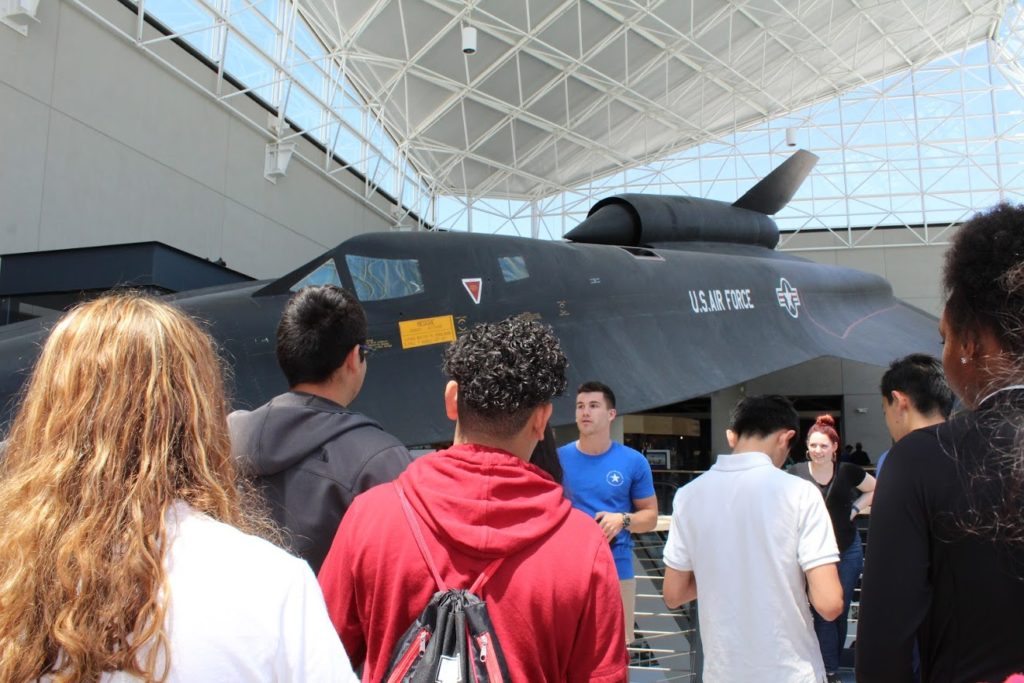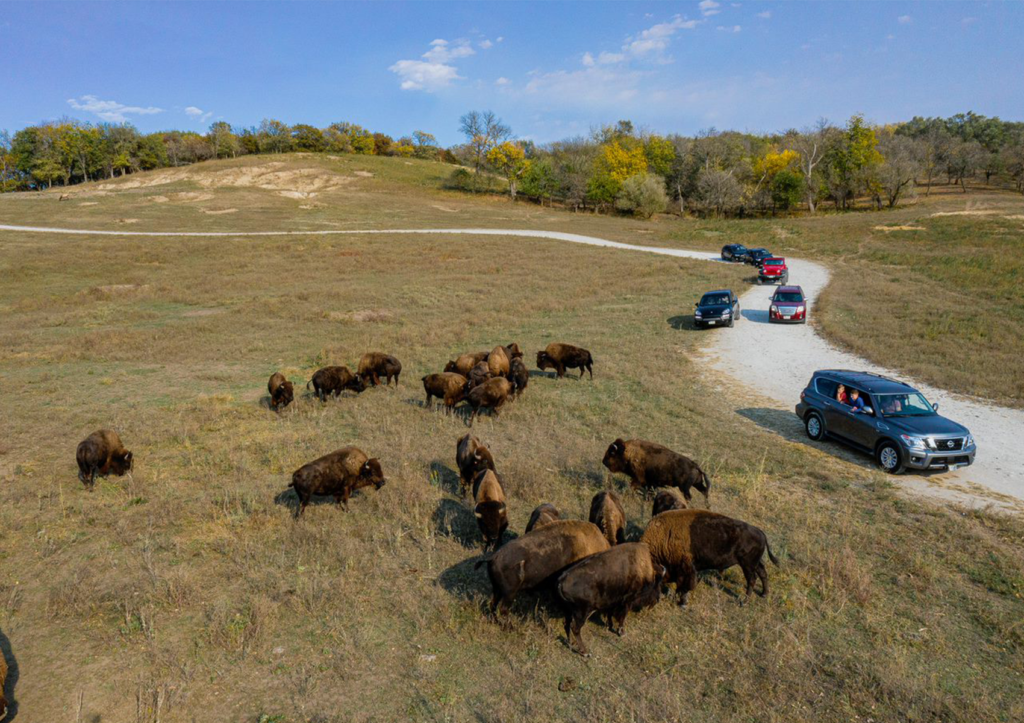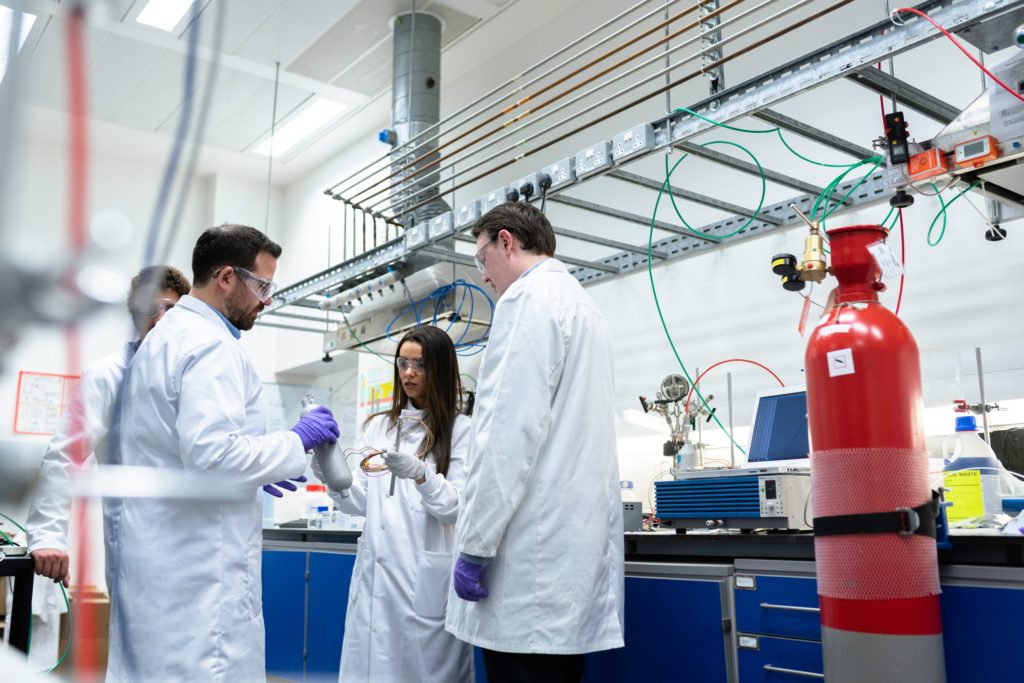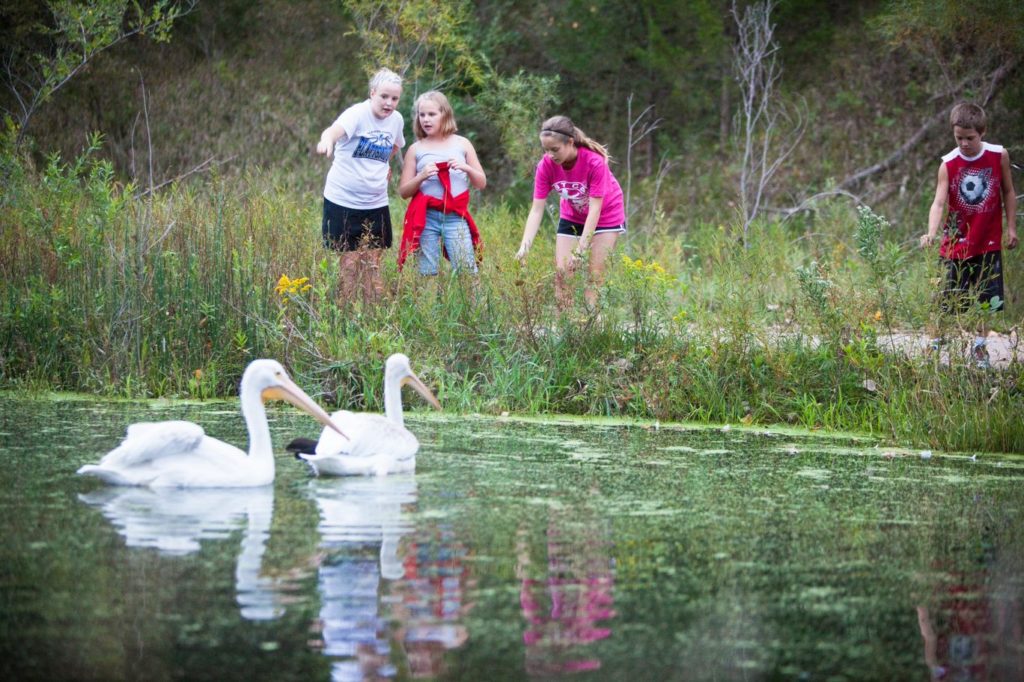What is science? Well, by asking that question, you already have one foot in the door to understanding. That’s because, at its most basic level, science is about asking questions to better understand the world around you. It is the systematic study, testing, and asking questions to know the universe. Science is divided into three major branches: natural sciences, which study nature; social sciences, which study people; and formal sciences, like mathematics, which study logic. There are also applied sciences, such as medicine and engineering, that use science to do specific tasks.

Up, up, and away! Aeronautics is the study of the science of flight. This field involves designing aircraft, as well as aerodynamics, propulsion, stability, and control in airborne devices. Aviation science prepares your for a career in the aerospace, aviation or airline business.
Related areas: Astronomy, Astrophysics
Sample Careers: Pilot, Aerospace Engineer, Drone Pilot, Flight Attendant, Aircraft Mechanic, Air Traffic Controller, Aviation Manager
STEM Outlook: This wide field has career with varying job outlooks. The U.S. Bureau of Labor Statistics estimates that over the next decade, job growth in this area will range from average to above average.
Explore Aeronautics and Aviation Careers
Agriculture science involves feeding the world. This field has been around since the beginning of civilization, but progress and discoveries around cultivating food and textiles are occurring today. If you're interested in plants, crop production, or livestock, consider agricultural science.
Sample Careers: Food Scientist, Farmers, Livestock Commission Agent, Grain Elevator Technician, Agricultural Equipment Operator, Drone Pilot, Livestock Veterinarian
STEM Outlook: Depending on the type of agricultural science career, the U.S. Bureau of Labor Statistics estimates job growth to be moderate or slower than normal over the next decade.
Explore Agriculture Careers
It's all about the animals in this area of science. Whether large or small, animals have a great impact on our ecosystems and society. The study of animal science helps us understand and manage domestic animals and wildlife. Some areas of animal science include wildlife management, food production, veterinary medicine, conservation biology, and zoology.
Sample Careers: Veterinarian, Zoologist, Nutritionist, Park Ranger, Animal Geneticist, Ecologist, K-9 Trainer
STEM Outlook: The U.S. Bureau of Labor Statistics estimates jobs in this field will grow slightly faster than average over the next decade.
Explore Animal Science CareersIn STEM, astronomy is a science that seeks to explain everything that we observe in the universe, from the comets and planets in our own solar system to distant galaxies to the echoes of the Big Bang. By studying the cosmos beyond our own planet, we can understand where we came from, where we are going, and how physics works under conditions which are impossible to recreate on Earth.
Sample Careers: Astronomer, Astronaut, Astrobiologist, Planetarium Director, Meteorologist, Climatologist, Astrophysicist
STEM Outlook: In the field of astronomy you can pursue a career as an university faculty or researchers, observatories, and government labs, with about 10 percent working in private industry or at planetariums or museums.
Explore Astronomy Careers
If it is -- or was -- alive, biologists will study it. From plants to animals and insects to microorganisms, biology helps us understand how living things work and how they function and interact.
Related areas: Chemistry, Medical and Health Services Manager, Attorney, Financial Analyst, and Health
Sample Careers: Microbiologist, Zoologist
STEM Outlook: Careers in biology are expected to grow slightly faster than average, according to the U.S. Bureau of Labor Statistics.
Explore Biology Careers
Chemistry is a branch of natural science that deals principally with the properties of substances, elements, molecules, and atoms. Chemistry studies the changes these substances undergo, and the natural laws that describe these changes. Chemicals are everywhere! Anything you can touch, smell, or see contains one or more chemicals. Many occur naturally, but some are man-made. Because chemicals are everywhere, chemistry is one of the foundations of modern industrial economies.
Related areas: Biochemistry
Sample Careers: Chemist, Forensic Science Technician, Chemistry Teacher, Geochemists, Hazardous Waste Chemist, Toxicologist
STEM Outlook: Depending on the type of chemistry, the U.S. Bureau of Labor and Statistics estimates job growth over the next decade will be average or slightly above average.
Explore Chemistry Careers
Environmental science is an interdisciplinary field that integrates areas of life, physical, and earth science to study and address problems facing the environment. Careers in this field implement science-based solutions to problems facing our environment and ecosystems.
Sample Careers: Hydrologist, Environmental Lawyer, Horticulturist, Environmental Policy Analyst, Forester, Environmental Engineer, Sustainability Officer
STEM Outlook: Envionmental scientists have a projected career growth of 8 percent over the next decade, according to the U.S. Bureau of Labor Statistics.
Explore Environmental Science Careers
This field focuses on researching and providing health care to human populations. While the underlying principles of other areas of science are used in this field, health science concentrates solely on health problems and outcomes. Whether you're interested in medicine, nutrition, or public health, this field can provide a pathway to a career making a difference in the health, and lives, of others.
Sample Careers: Genetic Counselor, Cytogenetic Technologist, Physician, Physician Assistant, Optometrist, Anesthesiologist, Surgeon, Podiatrist, Otolaryngologists, Phlebotomist, Physical Therapist, Physical Therapist Assistant, Occupational Therapist, Occupational Therapy Assistant, Pharmacist, Pharmacy Technician, Pharmaceutical Sales Representative, Registered Nurse, Practical Nurse, Advanced Practice Nurse, Certified Nursing Assistant, Medical Laboratory Assistant, Dentist, Dental Hygienist, Orthodontist, Periodontist, Oral and Maxillofacial Surgeon, Mental Health Counselor, Psychiatrist, Case Manager, Psychiatric Technician, Community Health and Human Service Workers, Registered Respiratory Therapist, Radiologist, Radiologic Technologist, Radiology Nurse, Medical Imaging and Medical 3-D Printing Specialist, Sonographer, Emergency Medical Technician (EMT), Emergency Room Technician (ERT), Medical Equipment Repairer, Patient Information Coordinator, Chief Privacy Officer, Health Data Analyst, Audiologist, Speech and Language Pathologist, Registered Dietitian, Nutritionist, Licensed Dietitian, Healthcare Administrator
STEM Outlook: The U.S. Bureau of Labor Statistics estimates that employment in healthcare occupations will grow by 15 percent, or much faster than average, in the next decade.
Explore Health and Wellness CareersScience, technology, engineering, and mathematics together make up the core of STEM disciplines. STEM utilizes collaboration, problem solving techniques, new concepts, and is solution driven.
STEM skills are found in almost any career field. Occupations in STEM are building the future and expanding our understanding of the universe. There is something for everyone in a STEM career because they all focus on innovation, problem solving and creating new knowledge.
Social Science
Social sciences are all about how society works. Social scientists examine institutions like the government, the economy, and family, along with what drives human behavior. Social science includes many fields like psychology, economics, history, sociology, political science, and philosophy.
Related areas: Social Worker, Human Geography, and Cultural Worker
Sample Careers: Economist, Psychologist, Political Scientist, Sociologist, Social Media Specialist, Historian, Social Worker, Counselor
STEM Outlook: The U.S. Bureau of Labor Statistics projects employment in the life, physical, and social science occupations will grow by 5 percent over the next decade, faster than average for all occupations.
Explore Social Science Careers